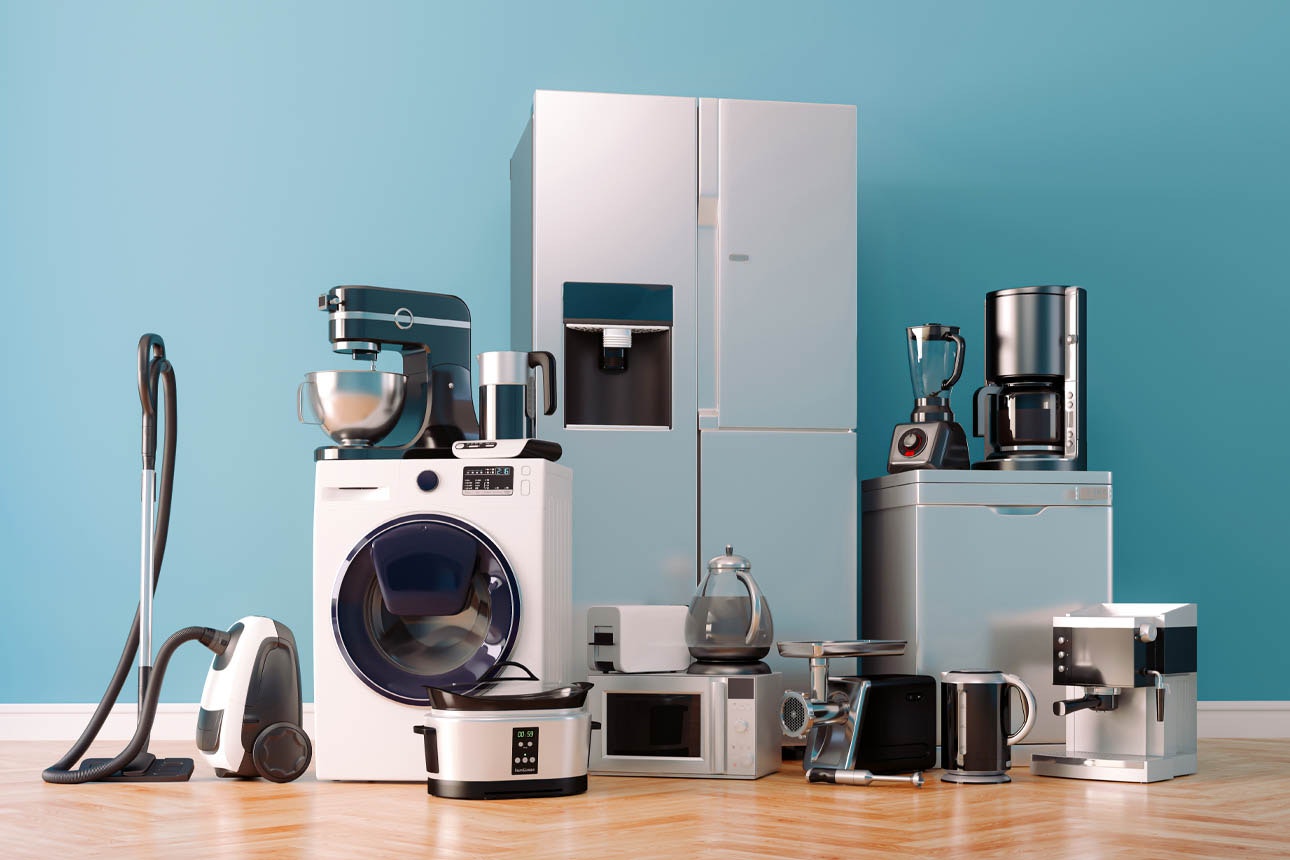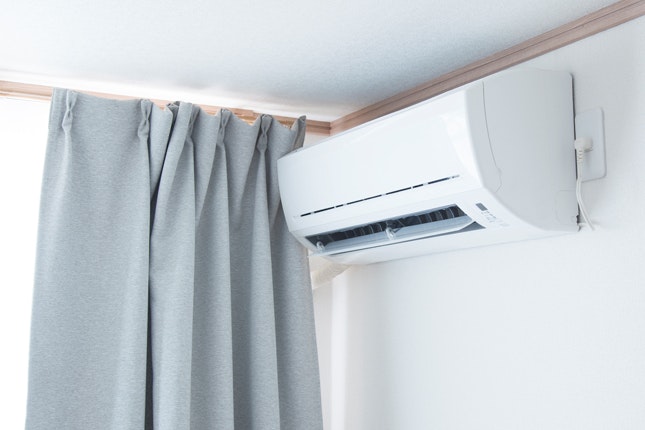We probably don’t need to tell you that heating is key to a healthy home. It can be hard to do as a renter, so here are a few tips and tricks.
Heating your rental
Your landlord’s responsibilities
To provide a heating source in the living area. The current healthy homes standards require heating in the main living area to be fixed (not portable).
If there is fixed heating in your rental, your landlord is responsible for maintaining it. You need to let your landlord know if any fixed heating needs repair or servicing.
Heating costs
A third of the energy supplied to your home in winter will be used for space heating, with another third going on water heating. We found heat pumps were the cheapest space heaters to run, but a lot of rentals don’t have them.
GUIDE TO THE FIGURESBars represent the range between maximum and minimum costs. Black lines represent the national median. Electricity and natural gas costs are based on April 2023 data from powerswitch.org.nz. Other prices were collected in March 2023. GST is included.
Do you have one of these unflued gas heaters?
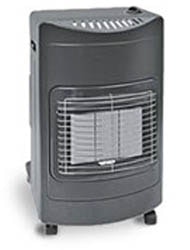
Unflued LPG gas heaters (the kind you connect to a gas bottle) are a health and safety hazard, as they fill the air with moisture and produce carbon monoxide. It is our recommendation that they should never be used indoors. On top of the safety concerns, they’re the most expensive heaters to run. If you still have one, your best bet is to retire it and buy an electric heater as a replacement.
Electric heaters
If the home you’re renting doesn’t have a heat pump, or if you’re after a heating option for bedrooms, look at an electric heater.
Size it up
Your first step should be figuring out what size heater you need for the room. All electric heaters with the same power output (eg. 1000W or 2000W) cost about the same to run, but how evenly and quickly they heat a room will vary. This means choosing the right type of heater can cut down your power bill – a good heater that’s sized correctly for the room doesn’t need to work as hard as an underperforming one to achieve the same warmth.
Use our calculator to work out what size heater you need.
Types of portable electric heaters
Oscillating towers
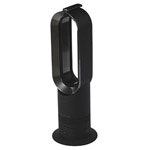
These heaters combine radiant heat with a fan and they’re good at quickly bringing up the temperature of an office or smaller living space. They usually have a range of controls, including timers and eco-modes. On the downside, because they’re tall with small bases, they can be unstable and some are noisy.
Convection heaters
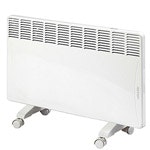
These are designed to provide background warmth and are good for rooms that need a quiet and unobtrusive heater, like bedrooms and hallways. Convection heaters warm the air near the element or body of the heater. The warm air circulates by natural convection around the room. Many have a fan, which our tests have shown provides faster warm-up and more even heating.
Oil column heaters
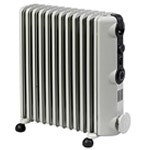
These are a type of convection heater and can provide safe and quiet background warmth which makes them good for kids’ bedrooms or overnight heating. However, they are slow to heat a room and produce uneven heating.
Radiant heaters
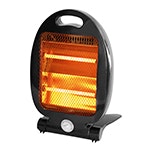
These have glowing electric elements with reflectors to radiate heat directly on to you. They provide quick directional heat to a small area of a room and provide some convection heat.
Micathermic heaters
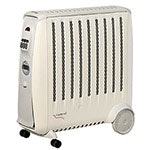
Micathermic heaters produce a radiant heat that combines with the convection heating you would get from an oil column. They warm up faster, but can get very hot to touch. These have sheets of mica, a slate-like mineral, inside them which heats up quickly. They can heat small living areas but like all heaters without fans, the heat pools at the ceiling.
Features to look for in an electric heater:
A thermostat helps maintain an even temperature. This will also make it more cost-efficient to run because it switches itself off when the room has reached the desired temperature. Digital thermostats that let you set a specific temperature are generally more effective than temperature dials.
Timers can be useful if you want to be able to turn the heater on to warm up the room before you get up or after you go to bed.
Fans help warm up a room faster and distribute the air more evenly, preventing heat build-up near the ceiling.
Other tips:
Compare prices before you buy so you don’t pay more than you need to.
If you're buying a fan heater or a convection heater with a fan, listen to it in the shop. Some are surprisingly noisy.
If you have a heater without a fan, try pairing it with a small electric fan. Our test results showed the upwards convection currents of many fan-less heaters create a "pool" of hot air near the ceiling. But when we took one of the oil-column heaters and did some extra tests using a small desk fan placed on the floor and aimed at the heater, the results were dramatic — the heater raised the average room temperature by 5°C three times faster than when we tested it without the fan.
Heat pumps
If you’ve got a heat pump in your rental, you’re probably on to a good thing. Heat pumps are generally the cheapest to run – they’re three times more efficient than an electric plug-in heater.
Using heat pumps wisely
Only leave your heat pump on all day, every day, if your home is well sealed and has good insulation. In draughty villas, you’re better off only switching it on when required.
Don’t set the controller to a higher temperature than required. Selecting 30°C in an effort to warm a room extra fast doesn’t work – set the temperature you want (we recommend 19-21°C) and let the heat pump do the rest. If you want to feel a bit warmer, try turning the fan speed up instead as it’ll circulate the warm air around the room.
Use the Heating mode, not Auto mode. In Auto, the heat pump tries to maintain the set temperature by constantly changing between heating and cooling as the room temperature fluctuates. This can waste a lot of energy that you’ll be paying for.
If your heat pump spends twenty minutes defrosting on cold winter mornings, use the timer to turn it on half an hour before you get up, or leave it on overnight at a low level if your home is well sealed.
Heat pumps can dehumidify too, but only when they’re in “dry” mode and not in heating mode. They don’t tend to extract as much moisture as a dedicated dehumidifier, but an advantage is that there’s no tank to empty.
Vacuum the filter on your indoor heat pump unit every three months. Regularly inspect the outdoor unit to ensure it hasn’t become overgrown or clogged with debris, and look out for rust. Beware of cold callers pressuring you into expensive heat pump servicing. They often charge hundreds of dollars for a service you can perform yourself in a few minutes.
What size heater?
Our calculator allows you to estimate the capacity of heater you’ll need to maintain a comfortable temperature. Measure the width, depth and height of the room to be heated and enter the figures into the calculator.

A renter's guide to a warmer home
Our free guide provides advice and tips on what you can do to make your home warmer, cosier and cheaper to heat.
Why is this free?
This report is free thanks to funding from the Ministry of Health.
Consumer NZ is non-profit. To help us get a fairer deal for all New Zealand consumers you can become a Consumer member or make a donation. We’ll use your contribution to investigate consumer issues and work for positive change.
